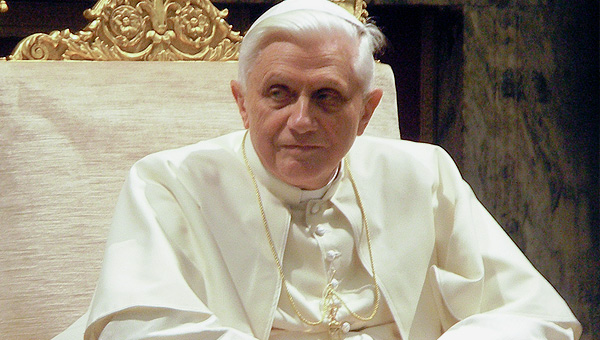Re-thinking the papacy


“We have become accustomed to speak of the ‘Supreme Pontiff’, of a ‘monarchical-style’ papacy, of Roman ‘hands-on’ intervention world-wide. But it was not always so and need not be so.” So writes Jesuit theologian Gerry O’Hanlon in an article on the papacy published in the Irish Times on Tuesday, 19 February. The article examines what the role of the Pope should involve and was written after Pope Benedict XV1’s historic resignation announcement that took the whole world by surprise.
Noting the observations of former Irish President Mary McAleese on the “constitutionally incoherent nature of the Catholic Church’s organizational structure, with its unresolved tensions between papal primacy and Episcopal collegiality”, he says it is not surprising that many people feel disconnected or alienated from the institutional Church. The fall out from this unsatisfactory impasse is considerable, leaving us with many important and unanswered questions, he contends.
“Where are the structures and institutions to embody the notion of Church as communion, the collegial thrust which the Second Vatican Council proposed? Is there not an anachronistic reliance on a monarchical form of governance, with the Pope and Roma Curia at its apex? Has this not led to the stern rejection of alternative voices, a culture of silence and fear, in which the attempt is made to silence the views of Fr Tony Flannery in Ireland, Bishop Bill Morris in Australia, Dr Tina Beattie in the UK, Sr Elizabeth Johnson in the USA and many, many others, in ways that fall well short procedurally of what modern norms of justice demand?”
He sees hope in the fact that the situation was not always thus and advocates that we begin immediately to work for a re-imagined vision of church with ‘communio’ at its heart. “The Swiss Benedictine Abbot Martin Werlen tried to help us re-imagine this operative world-view recently when he suggested that the Pope might make a number of lay cardinals, women and men, of different ages and from all parts of the world, to help him govern the Church. “
He acknowledges that it is not the job of a Conclave to reform the Church but suggests it may be their job to identify the candidate best suited to bring about Church renewal and that candidate might even be from outside the conclave.
“Cardinal Sean Brady and his fellow electors would do us all a great service if they took seriously ecclesial and papal reform as the major criterion in their choice of candidate for the Petrine ministry, that great gift of God’s Holy Spirit to Catholics and, if reformed, to all Christians,” he concludes. You can read the full article here.
A Pope resigns
Jesuits Jim Corkery and Peter McVerry were among the many contributors to radio and television coverage in the wake of the historic decision by Pope Benedict XVI to resign from office at the end of the month. He took the world by surprise with his statement on the morning of Monday, 12 February.
Theologian Jim Corkery, studied under Josef Ratzinger and is the author of a book on his theology. He was a panel guest on RTE Radio 1’s ‘Godslot’ programme presented by Eileen Dunne. She put it to him that in the wake of ‘Vatileaks’ and the book published on foot of the theft of his private documents, there was a sense that the Pope was no longer in control. He responded by saying he too had felt that and he sensed that the Pope felt betrayed and very disappointed. “He wouldn’t have expected those kind of things to be going on and in a way he was too trusting.” And yet he was aware that as he was getting older he would be needing to trust those around him more and more”
Citing the mistake that lead to the appointment of holocaust denier Archbishop Williamson (a simple internet check would have sufficed) he said that the Pope suffered from “not being so modern and from his office not being efficient enough and from other people having too much power in his office. I think that took its toll”.
Commenting on his voice the day of his resignation Jim noted, “I have been listening to this voice for over thirty years and it is no longer strong. It is weary, it is tired and whatever else one can say about him, he certainly worked hard.” Listen to the full programme here.
Peter McVerry SJ, who works with homeless young men, was a guest on RTE televison’s ‘Morning Edition’. Commenting on the fact that the last Pope to resign (six hundred years ago, and in very different cirumstances and for reasons different to the present Pope), he said Pope Benedict would be remembered more for his resignation than for anything else he had done in office.
He acknowledged that the Pope “did write a great encyclical on the global economic crisis, and I think that it was very radical and very good”, but nonetheless many people were alienated from the Catholic Church whose structures, he said, appeared “caught in a time warp of about 400 years ago”.
He said it would take a charismatic Pope to deliver the changes needed and when asked if the thought the College of Cardinals could produce such a leader he said “It’s probably unlikely”.

